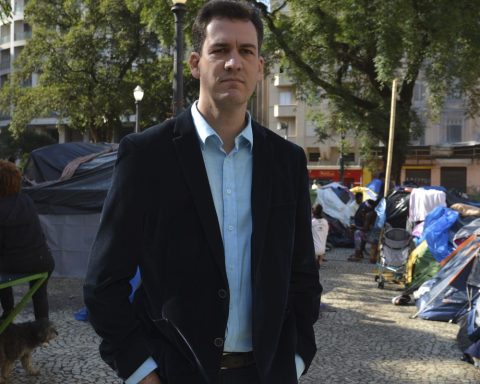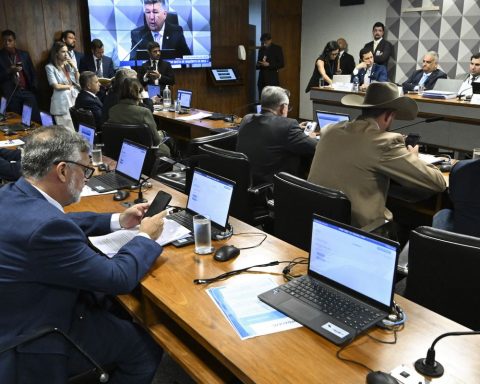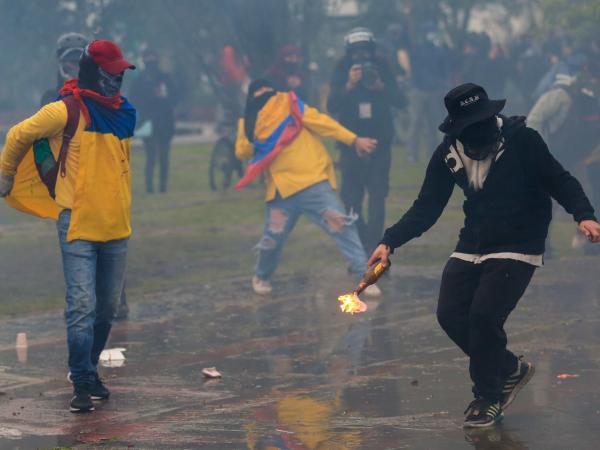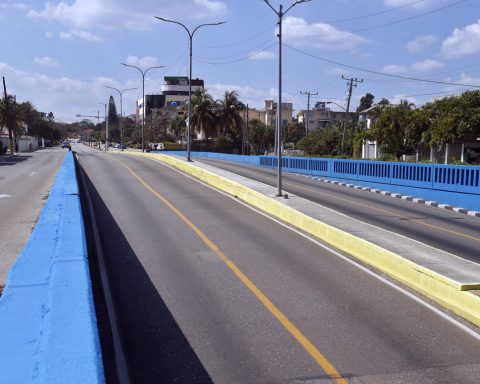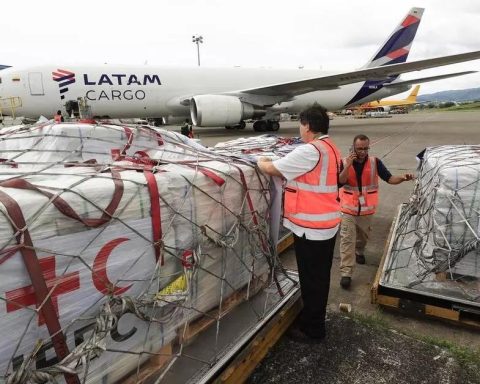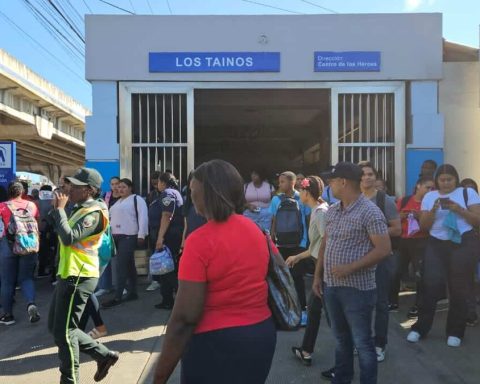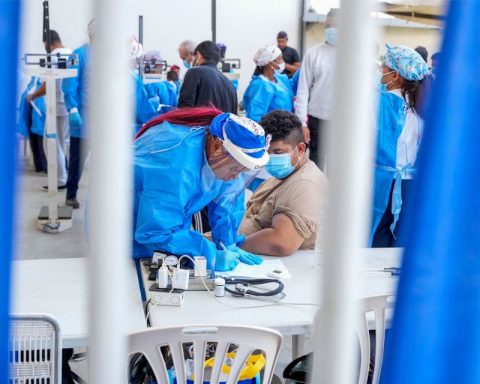Anglo-Australian mining company BHP Billiton, one of Samarco’s shareholders, has signed an agreement in the UK committing not to support or finance an action brought at the Federal Supreme Court (STF), in which the Brazilian Mining Institute (Ibram) requests that the possibility of municipalities promoting legal disputes abroad be considered unconstitutional.
This is yet another chapter in the new legal battle that began last month and involves the collapse of the Mariana dam (MG) in November 2015, which caused 19 deaths and caused damage to the populations of dozens of communities in Minas Gerais and Espírito Santo along the Rio Doce basin. Since then, those involved have been exchanging a series of accusations.
Dissatisfied with the reparations process in Brazil, around 700,000 people affected and 46 municipalities, as well as companies and religious institutions, have taken action in British courts to hold BHP Billiton, which is headquartered in London, accountable. The case has been ongoing since 2018. Hearings scheduled for October this year will assess the mining company’s liability.
More recently, thousands of people affected by the tragedy and seven municipalities also took the case to court in the Netherlands. In this case, the target is the Dutch subsidiaries of Vale and Samarco. The action was accepted by the European country’s judiciary in March of this year. Two weeks ago, Vale and BHP Billiton, the two shareholders of Samarco, they reached an agreement to cover equal amounts in the event of a conviction by the courts of either country.
The new legal battle began when Ibram, which represents the country’s largest mining companies, filed a lawsuit with the Supreme Court seeking to prevent Brazilian municipalities from filing lawsuits in foreign courts. The entity claims that it is unconstitutional for federal entities to get involved in litigation abroad. Minister Flávio Dino, appointed rapporteur, has already denied requests for an injunction and considered that the case should be analyzed in the plenary.
Two days after the Ibram move, the Public Consortium for the Defense and Revitalization of the Rio Doce (Coridoce) requested to join the lawsuit. It is made up of the mayors of the municipalities involved in a lawsuit underway in the United Kingdom. The action also generated a reaction from the Pogust Goodhead law firm, which represents the affected parties and municipalities in the lawsuits filed in the United Kingdom and the Netherlands. The matter was taken to the British courts.
The firm’s lawyers presented documents proving that the Ibram lawsuit was filed at the request of BHP Billiton. They claimed that the attempt to block access to the British courts would be a violation of the rights of municipalities. An injunction was requested to prohibit BHP from adopting any measure that would prevent the final resolution of the lawsuit in the United Kingdom. They also accused the mining company of initially lying by denying involvement in the lawsuit. They claim that, when challenged with evidence, it ended up admitting that it financed the lawsuit with a contribution of R$6 million.
The minutes of the Ibram board meeting, dated May 23, record BHP Billiton’s request for the Supreme Court to be contacted with the aim of “challenging the possibility of Brazilian municipalities litigating lawsuits abroad regarding cases that occurred in Brazil, especially in the case of the collapse of the Fundão dam”. In the opinion of the Pogust Goodhead law firm, the mining company had no way out and signed the agreement to avoid being penalized. The lawyers for those affected understand that the mining company will also have to ask Ibram to drop the lawsuit in the Supreme Court.
This is not BHP Billiton’s interpretation. Sought by Brazil Agencyl, the mining company reported that it committed in the agreement not to make new contributions to Ibram and that it expects the action in the STF to follow its normal course.
“BHP denies the requests made in the English case in their entirety, and considers the action unnecessary, since it duplicates issues already covered by existing and ongoing actions in Brazil, under the supervision of the Brazilian courts”, states a note released by the mining company. The agreement has already been approved by the British court and there are even provisions for sanctions in case of non-compliance, from fines to seizure of assets and imprisonment.
The municipalities linked to Coridoce believe that Ibram wants to force the municipalities to agree to reparation agreements in which they are not consulted. In Brazil, the reparation process revolves around the Transaction and Conduct Adjustment Agreement (TTAC) – signed between the three mining companies, the Federal Government and the governments of Minas Gerais and Espírito Santo. Based on this agreement, the Renova Foundation was created. It took over the management of more than 40 programs, with the mining companies being responsible for paying for all the measures.
However, after more than eight years, the entity’s actions have been the target of several legal challenges and since 2022 there has been an attempt to renegotiate the reparation process, capable of finding a solution for more than 85 thousand lawsuits that are being processed regarding the tragedy. The municipalities are once again not participating in the negotiations, which are currently register a stalemate because the values proposed by the mining companies have not yet met the expectations of the Union and the governments of Minas Gerais and Espírito Santo.
Argument
According to Ibram, the action brought before the STF is an Argument of Non-Compliance with a Fundamental Precept (ADPF) whose main objective is to protect Brazilian sovereignty. The entity claims that, without going through the scrutiny of the Brazilian justice system, the transparency of actions filed abroad is compromised. Furthermore, it maintains that the participation of the Public Prosecutor’s Office in proceedings involving federative entities is mandatory, which would be unfeasible in cases that are processed outside the country.
On Wednesday (24), during the presentation of the semiannual data for the mining sector, the CEO of Ibram defended the move. “We support national companies and national mining companies against this initiative that is absolutely contrary to the Constitution, sovereignty and Brazil itself. We are no longer in the time of Colonial Brazil, when foreign courts, including those from England, demanded extraterritoriality here and that nationals be tried by the courts there. This makes no sense.”
After the agreement in the United Kingdom became public, Ibram had already released a statement repudiating the reaction of the defense of those affected and stated that it acted in accordance with the interests of its members. The entity believes that the reparations for the tragedy have been paid for by companies in Brazil, under the supervision of the Brazilian Judiciary. In addition, it states that the action of those affected in the United Kingdom is financed by a vulture fund, which seeks to profit from the tragedy.
“It turns out that a foreign law firm based in London, England, and a vulture fund, both widely identified as members of the tragedy industry, that is, as defenders of other people’s causes for their own benefit and gain, acted to file a similar lawsuit in the Courts of London and the Netherlands, in flagrant disregard of the Brazilian justice system, our Constitution and national sovereignty. If they win, they would get the lion’s share of the compensation proposed to the municipalities and more than 700 thousand people, to whom they would grant the leftovers, nothing more than crumbs, using the victims as puppets for unspeakable objectives”, the text states.
The accusation was refuted by the firm. “The fees received follow market practices and vary according to the type of client, with the average being 22.5% – as some clients are served in a pro bono [sem cobrança]such as indigenous people and quilombolas. Victims do not pay anything for legal assistance and Pogust Goodhead will only receive fees in the event of a victory. The firm, therefore, receives funding from funds to cover legal expenses – which have already totaled R$150 million over the 6 years of the process”, he informed.
According to lawyers defending those affected, this model provides access to justice for victims who, in many cases, would not have the means to take on billion-dollar corporations like BHP in court. The Movement of Dam Affected People (MAB) supports this fundraising.
“It is extremely legitimate for the office to seek funding to ensure that this action is well done and well subsidized technically so that we can be successful. Those who have made money from the tragedy are the criminals defended by Ibram. The propaganda and deception actions that criminal companies have carried out make crime a profitable business in our country. And this is the reason for an international action, because unfortunately, to this day, the power of companies in our country has meant that justice has not yet been achieved,” said Joceli Andrioli, member of the MAB coordination team.

